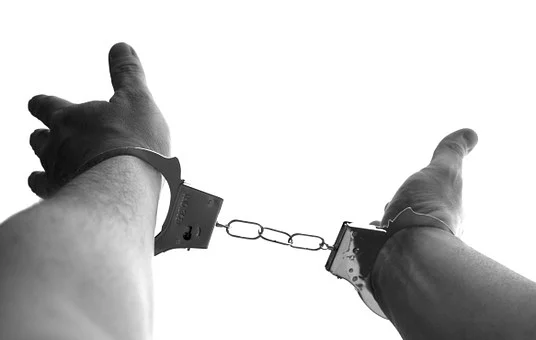What Happens When a Person Is Charged With a Crime?

While most people attempt to stay away from illegal activities, they may be curious about what occurs when someone is charged with a crime. Although it may simply appear that a person is apprehended, interrogated, and then charged with a crime, there are actually more procedures.
When You're Charged with a Crime, What Happens Next?
First, there's the arrest, and then there's the police report. The prosecutor decides whether or not the person seized should be charged with a crime after reviewing the police report. Alternatively, the prosecutor may seek an indictment from a grand jury to determine if criminal charges should be filed.
Finally, a preliminary hearing is held to decide whether there is enough evidence to proceed. Criminal charges are normally filed within three days, while some jurisdictions allow for filing in as little as two days. Because prosecutors are under pressure to file quickly, the crime you're charged with at the outset may change substantially over time.
The Arrest and Report
The police write an arrest report and send it to the prosecutor after making an arrest. The report outlines the circumstances leading up to the arrest, including dates, times, locations, and witnesses.
Based on this report, the prosecutor has three options: file a complaint with the trial court, outlining the charges; go to a grand jury, present the evidence to them, and ask them what criminal charges, if any, should be filed; or decide not to continue the case.
Prosecutors have considerable discretion not just in deciding whether or not to bring charges but also in determining which of the numerous conceivable offenses a person should be charged with.
Whether to Prosecute
Prosecutors have a lot of discretion when it comes to selecting whether or not to prosecute a defendant and what charges to pursue. Here are some of the considerations that factor in their decision:
Political Aspirations: Some prosecutors seek political office or political positions. As a result, they are acutely mindful of the public image prosecuting a certain offense conveys. Even if the evidence is shaky, a prosecutor may still decide to pursue a case if there is widespread public indignation.
Office Policies: Prosecutors frequently have policies about which offenses they will prosecute.
Prosecutor's Notion of Justice: Prosecutors, like everyone else, have their own ideas about what is right and what is wrong. On the one hand, it could persuade a prosecutor to pursue a case more aggressively than the facts warrant. On the other hand, it may result in a prosecutor filing lower charges or declining to prosecute a case where the prosecution believes that justice would be served even if no one is prosecuted.
The Grand Jury's Role
Grand juries are identical to normal jurors (sometimes known as "petit juries"), except that their function is to decide whether charges should be made in the first place rather than to judge a person's guilt or innocence at trial. For example, a lawyer like criminal defense attorney Stroleny presents evidence before a grand jury, which then decides whether or not charges should be made, as well as the nature of those charges. Here are a few more distinctions between the two sorts of juries:
Grand juries examine evidence to determine whether to file charges, but they do not determine guilt in the same way that regular juries do.
Grand juries typically have more members than normal juries, with some having as many as 23, although regular juries typically comprise between 6 and 12 members.
Regular juries require a unanimous judgment, whereas grand juries do not. A unanimous decision is not always required by grand juries; in some cases, a mere majority is sufficient.
Grand juries meet in secret, whereas regular jurors serve in public trials.
Subscribe to Latin Post!
Sign up for our free newsletter for the Latest coverage!
© 2026 Latin Post. All rights reserved. Do not reproduce without permission.















